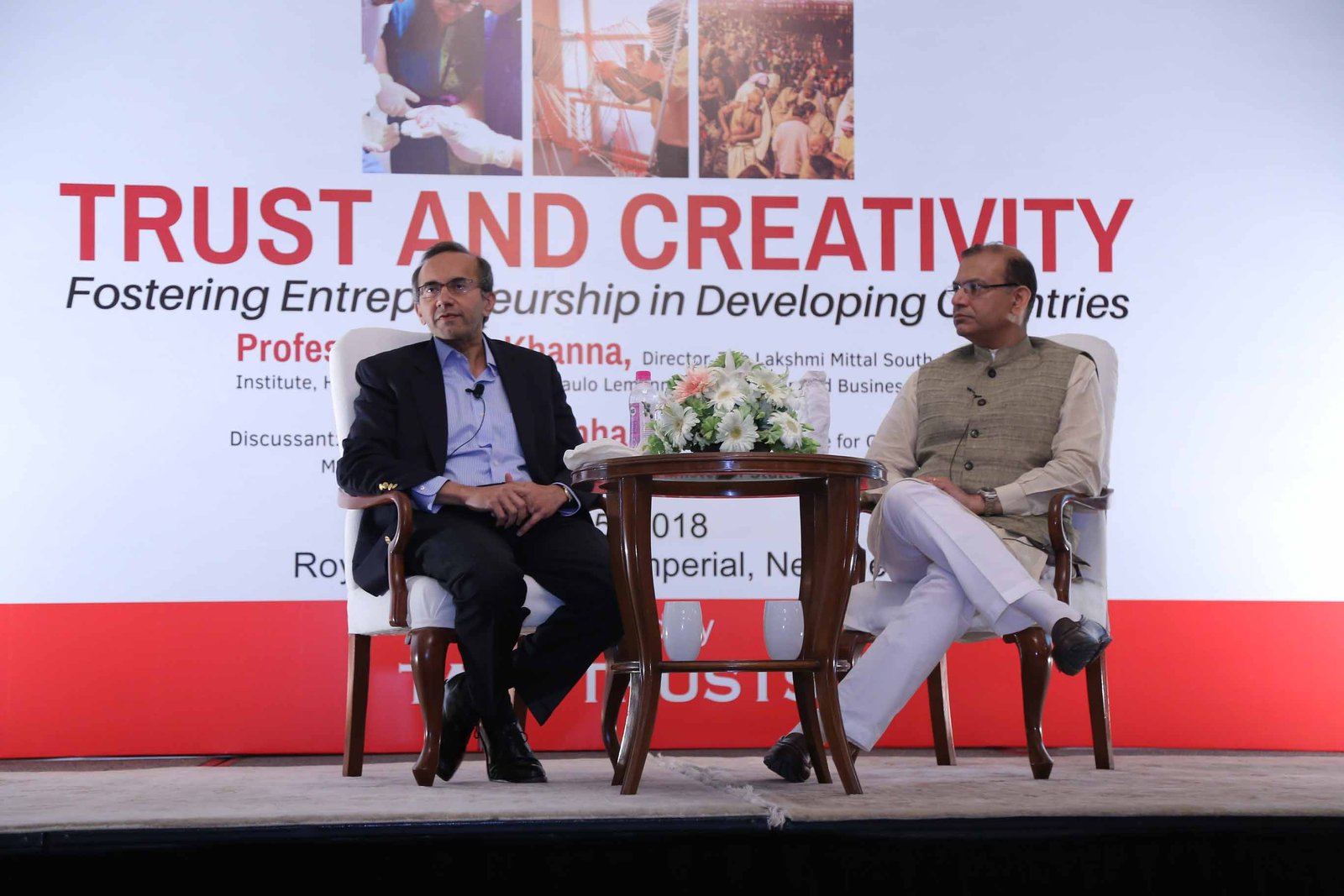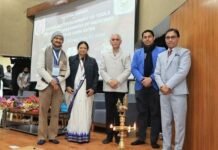New Delhi: April 11: The Lakshmi Mittal South Asia Institute, (LM SAI) Harvard University, recently organized an open house on “Trust and Creativity, Fostering Entrepreneurship in Developing Countries”, the last in a series of events planned to mark the official opening of its India headquarter in Delhi. Prof Tarun Khanna, Director – The Lakshmi Mittal South Asia Institute, Harvard University & Jorge Paulo Lemann Professor Harvard Business School, spoke about various aspects of encouraging entrepreneurship in developing nations. Shri Jayant Sinha, Honorable Minister of State for Civil Aviation and a former investment fund manager and management consultant, took part in the discussion and moderated the question-and-answer session. The LM SAI India office marks a new era of Harvard University’s direct engagement with the region.
For more than two decades at Harvard Business School, Prof Khanna has sought to study the drivers of entrepreneurship in emerging markets as a means of economic and social development. He spoke about the Lakshmi Mittal South Asia Institute’s commitment to studying and researching all aspects of South Asia, alongside its partnership with major Indian institutions in arts, social entrepreneurship and life sciences. Mr. Sinha spoke about how entrepreneurship can improve economic growth of developing nations like India.
Prof, Mr. Tarun Khanna, Director- The Lakshmi Mittal South Asia Institute, Harvard University, said, “We strongly believe that encouraging entrepreneurship will help our nation develop by opening multiple avenues for younger generations. The Lakshmi Mittal South Asia Institute, Harvard University is committed to disseminate knowledge, build capacity, inform policy, and engage with issues that are shaping South Asia today, by conducting research across South Asia region. Today’s open house is part of the monthly seminar series planned by LM SAI to spur knowledge-sharing amongst thought leaders. I believe these events will encourage a fruitful exchange of views on crucial issues and inform policy making in a positive way.”
The Lakshmi Mittal South Asia Institute, Harvard University, is a university-wide research institute at Harvard that engages faculty and students through interdisciplinary programs to advance and deepen the teaching and research on global issues relevant to South Asia. Currently, Lakshmi Mittal South Asia Institute in India is running programs/research projects in India related to the arts, social science and the pure science. LM SAI also serves as a nexus for Harvard’s engagement with Afghanistan, Bangladesh, Bhutan, India, Maldives, Myanmar, Nepal, Pakistan and Sri Lanka, as well as diaspora populations from these countries.
It is to be noted, founded in 2003, the South Asia Institute serves as Harvard’s premier center for regional studies, cross-disciplinary research, and innovative programming pertaining to South Asia. As such, it is the nexus of Harvard’s engagement with Afghanistan, Bangladesh, India, Maldives, Myanmar, Nepal, Pakistan, Sri Lanka, Tibet, and diaspora populations from these countries. In Harvard’s sprawling, intellectual ecosystem, area centers like LM SAI play a crucial role in bringing together faculty and students from different parts of the University to sustain, coordinate, and stimulate academic engagement with the region. This engagement spans the full range of intellectual endeavour, from the arts and humanities to social and natural sciences, and from engineering, law, architecture, and design to education, business, medicine, and public health.
LM SAI enables Harvard students, faculty and researchers to engage deeply with the region, complementing more than 140 South Asia-related courses that are taught on campus with academic and cultural exchanges. The institute works alongside more than 250 academic staff from a variety of disciplines across Harvard and other institutions, including several in India.



























